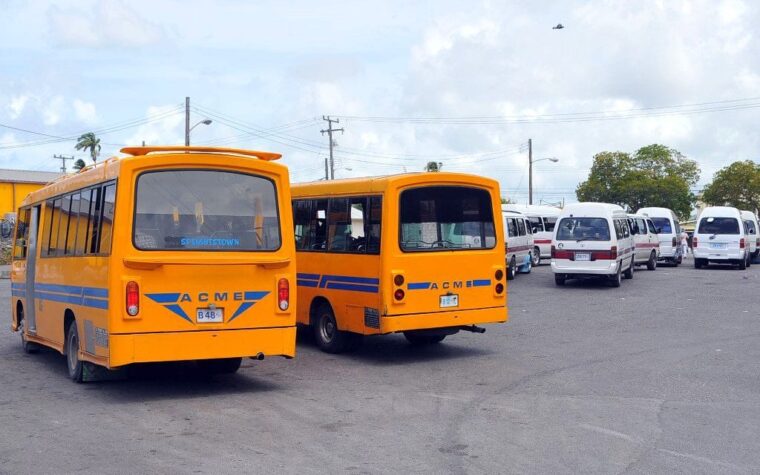Disclaimer: The views and opinions expressed by the author(s) do not represent the official position of Barbados TODAY.
By Dennis De Peiza
The employment of persons in a country is often seen as a national priority to the growth and productivity of the economy. Alongside that is the need to establish an efficient transport system. This is critical if only to ensure that persons can commute to and from work. This underscores the need for the authorities to pay attention to ensuring that the public transport system is reliable and safe.
This brings us to addressing the issue of safe work in the public transport sector. Government agencies have a responsibility to ensure the safe operations of the public transport system. This responsibility also falls to the owners of private public sector vehicles (PSVs). It cannot be overlooked that with each passing year, there are increasing complaints of acts of indiscipline being committed on the roadways of Barbados by PSVs, including minibuses and route taxis, commonly known as ZRs.
Based on observations, it appears that many of those employed in this sector as drivers and conductors defy the road traffic laws of Barbados. Some of them display inept, discourteous and aggressive behaviour towards their customers, pedestrians and other motorists. There is seemingly little respect shown to members of law enforcement. It would appear that the authorities have no answers to address the growing level of non-compliance with the Road Traffic Act and the regulations which govern the operation of PSVs.
It is appalling to imagine that in the year 2024, issues such as non-compliance with the dress code for drivers and conductors, setting down and picking up passengers other than at a bus stop, and indiscriminate parking are still recurring problems. While Barbados continues to pride itself as a disciplined society, it is questionable whether this can be said of the public transport sector. Why should the island’s public transport system remain in chaos for over 30 years? How can there be an efficient public transport service where private sector operators are allowed to determine when they will work on a daily basis? Why is it that the overloading of passengers, the playing of loud music, the drinking of alcohol and smoking on these vehicles are allowed to continue?
Criticisms of this sector are more than justified. The profit motive seems to be a driving factor, and so members of the public have to put up with the reckless driving that endangers life, and the indifferent behaviour that causes all sorts of inconveniences.
This public nuisance needs to be fixed, instead of lip service being paid to addressing the problems. In a progressive Barbados where a 24-hour work culture is being promoted, a more safe, reliable and efficient transportation system is required.
Examples of a disciplined transport sector can be found in the neighbouring Caribbean islands of Trinidad and Tobago, Saint Lucia, Antigua and Dominica. Why can’t Barbados get it right? Any transport system that is based primarily on a competitive model is a recipe for disaster, particularly in the absence of strict enforcement of regulations governing operations.
The development of a bus schedule is one way of reducing the competition on the roads. This is part of the transport system which exists in first-world countries. Modern technologies can allow for electronic devices to be placed in all vehicles to monitor the overloading of vehicles and speeding. The enforcement of these measures and the application of a one- to three-month ban on the operation of a vehicle and its driver and conductor when infractions are committed can send a clear message to drivers and owners that enough is enough.
Owners and employees in the transport sector need to understand that they have a duty and obligation to the travelling public and, indeed, everyone to stop work that is unsafe.
Dennis De Peiza is a veteran labour and employee relations consultant with Regional Management Services Inc.




